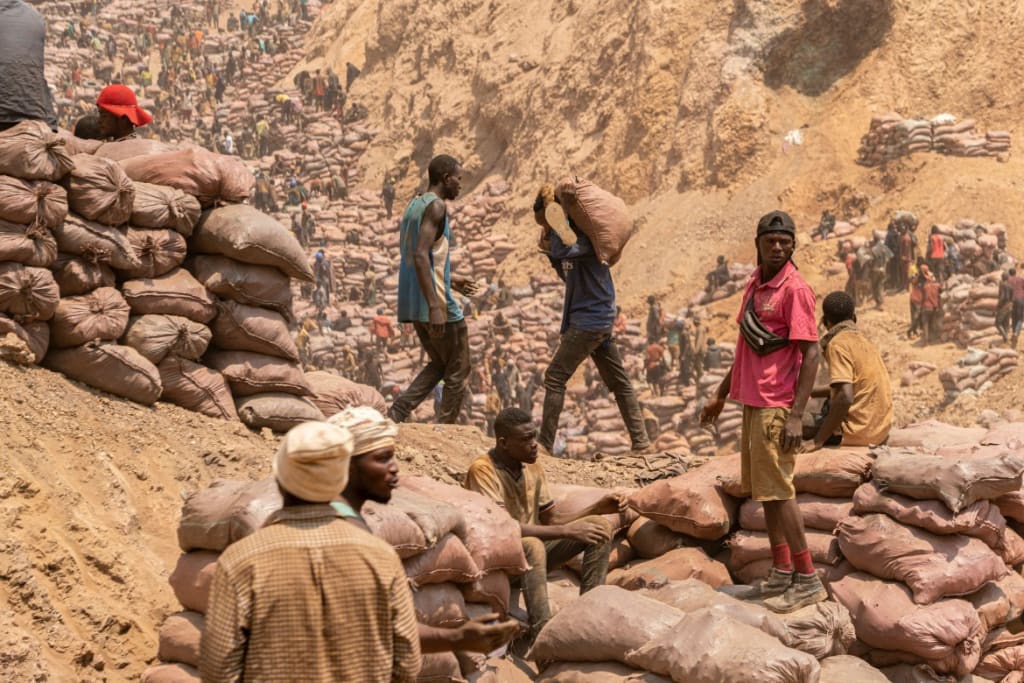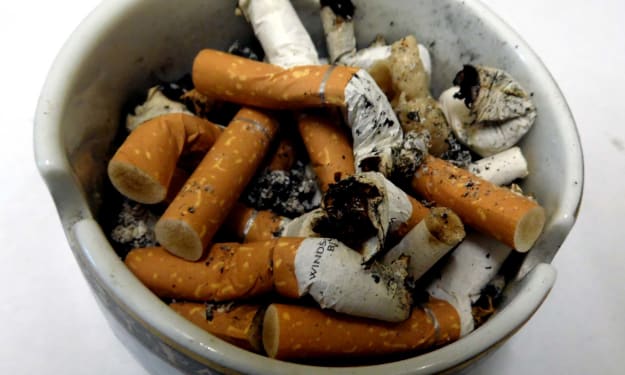Thousands of people in the Democratic Republic of the Congo mine cobalt, in high demand for electric vehicle batteries
Endangered lives in Congo Africa

The extraction of cobalt in the Democratic Republic of the Congo plays a vital role in the global shift towards electric vehicles. The demand for cobalt is particularly high due to its use in the production of batteries for electric vehicles. To accelerate the transition, the European Union has announced plans to ban the sale of new cars with internal combustion engines from 2035 onwards. The majority of the world's cobalt supply comes from Congo, but this mining activity has resulted in significant environmental and social issues in the region. Foreign companies, including those from China and Switzerland, have been exploiting the cobalt reserves for their gain. Additionally, artisanal mining in the Congo is a major source of cobalt supply, but it comes at a cost. Artisanal miners face dangerous working conditions and receive low wages. The Congolese government has struggled to effectively regulate the industry, further exacerbating the problems. Chinese companies have been known to manipulate scales and cobalt content, impacting the profits of the miners. The artisanal mining of cobalt in the DRC is exploitative and detrimental to the local population. The cobalt mines in the DRC primarily cater to Chinese entrepreneurs, resulting in wealth generation for foreign companies. Shockingly, children as young as seven are forced to work in these mines, putting their lives and health at risk. This supply chain has faced significant public backlash, as big tech companies and car manufacturers benefit from it. The heavy reliance on Congolese cobalt has become a concern for the transition to electric vehicles. To address this issue, Europe has set a goal of establishing 30 giga factories by 2035 to ramp up battery production. Northvolt, the first battery factory in Europe, aims to compete with Asian manufacturers. Furthermore, Finland possesses deposits of all the minerals required for battery production. Europe's objective is to have 30 million electric vehicles on its roads by 2030.
To achieve this objective, it would require the establishment of 10 Terra Pharma factories to meet the demand for Cobalt. However, the high operational costs and low productivity in Europe make it unlikely for the region to become a Cobalt El Dorado. To reduce its reliance on African minerals, Europe places significant emphasis on recycling, with companies like Umicor leading the way in the battery metals sector. Through the recycling of Cobalt and other battery metals, Europe can decrease its dependence on African mineral resources. To ensure responsible sourcing and minimize human rights abuses in the mining industry, thorough due diligence is being conducted. Artisanal mining in the Democratic Republic of Congo (DRC) poses considerable risks to working conditions. Approximately 33,000 miners in the DRC are monitored under the Better Mining program. Cobalt mining predominantly takes place in artisanal mining sites with substandard working conditions. The Cobalt supply chain in the DRC faces challenges in ensuring responsible procurement and transparency. Companies often rely on consultants or industry schemes to conduct due diligence, but this may not result in tangible improvements on the ground. Organizations such as Amnesty International and donors play a vital role in exposing and addressing issues within the Cobalt supply chain. The historical exploitation of Congolese resources, including Cobalt, has persisted for decades. Multinational corporations like Glencore and Kazakh Eurasian Research Group have obtained mining licenses through questionable practices. The relationship between Congolese politicians and businessmen like Dan Gertler has influenced the allocation of licenses in the Cobalt sector. Glencore and Dan Gertler have been implicated in corruption and bribery related to Congolese mining deals.
Glencore was granted the most promising exploration licenses in Congo. Gertler was provided with substantial loans by Glencore for mining transactions. Gertler resorted to bribing Congolese officials to secure mining permits. Those impacted by the corruption were left unemployed without any form of compensation. The mining operations in Congo are resulting in ecological and health-related problems. Companies such as Komodo Copper are being held accountable for pollution and neglect. The local community is enduring the consequences of contaminated water and food. Both the government and non-governmental organizations are struggling to effectively tackle the issue. In 2012, the Sotkamo mine, under the ownership of Talvivara Mining Company, discharged hazardous sludge, leading to its closure and eventual acquisition by Terra Farmer Group. Kiltwell Lake, the affected body of water, continues to suffer from algae blooms and a decline in fish population. Fishermen are facing challenges in selling their catch due to pollution and reduced demand. The victims of the catastrophe have been advocating for compensation for a decade. Environmental advocates have condemned the former mine owner's negligence and its adverse effects on the nearby waters. Inadequate planning of water treatment facilities has resulted in water pollution and environmental harm. The mining operations are contributing to contamination and environmental degradation. The water sources in the region are tainted with heavy metals and toxic substances. The waste generated by mining activities is leading to the depletion of biodiversity. The mining operations pose a threat to Finland's freshwater resources. There is a projected significant rise in the demand for raw materials for batteries by 2040. Legislative actions are being implemented to address environmental issues. Opting for electric vehicles can contribute to the well-being of the planet and future generations. It is crucial to consider the sourcing of materials utilized in battery production. The mining industry is facing escalating protests.
About the Creator
Enjoyed the story? Support the Creator.
Subscribe for free to receive all their stories in your feed. You could also pledge your support or give them a one-off tip, letting them know you appreciate their work.





Comments
There are no comments for this story
Be the first to respond and start the conversation.